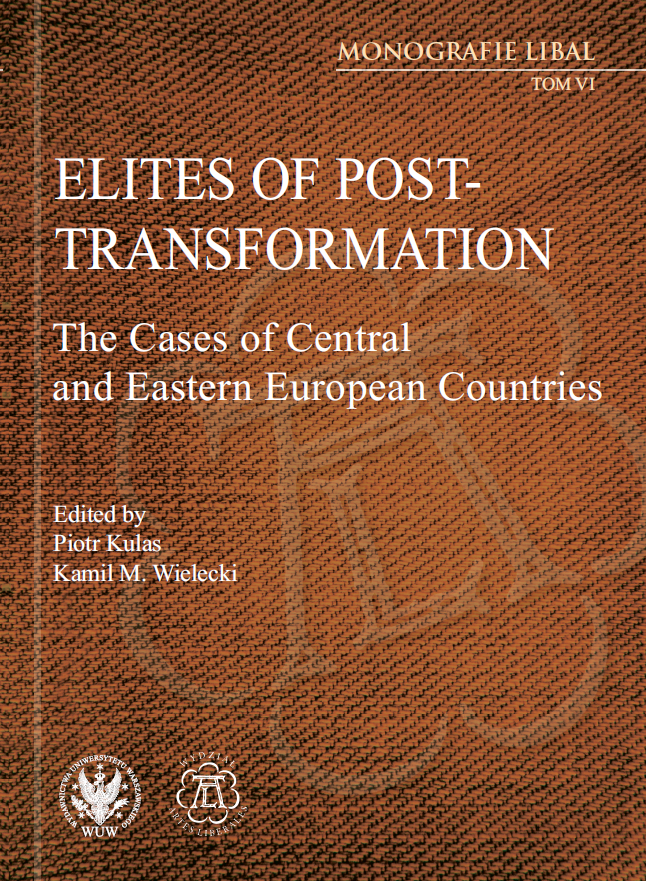ELITES OF POST-TRANSFORMATION
ELITES OF POST-TRANSFORMATION
FROM POST-COMMUNIST ELITES TO POPULIST ELITES
Author(s): Piotr Kulas, Kamil Maria Wielecki
Subject(s): Politics, Sociology, Security and defense
Published by: Wydawnictwa Uniwersytetu Warszawskiego
Keywords: elites; Central and Eastern Europe; systemic transformations; circulation and reproduction of elites; populism
Summary/Abstract: This chapter draws attention to the problem of the elite’s change in Central and Eastern European (CEE) countries after 1989 and underlines its importance nowadays. The authors point out that the systemic transformation was an elite-driven process. Elites were significant agents of control. The text describes different models of elite exchange in CEE countries. In some of them, post-communist elites remained influential. In others, opposition elites seemed to play a dominant role. However, even in the latter case, tensions between different factions of the democratic elite could not have been avoided. They influence the public spheres and policies in each country. It is clear that the process of replacement at the time seemed imperfect and incomplete. The authors posit the question (which is also the main theme of the volume) whether we are dealing with circulation or reproduction when it comes to populist elites. The populists’ effort lay in presenting their road to power as circulation. At least in some cases, however, this can be understood as reproduction since the current members of the elite were already in power. These efforts are accompanied by a strong anti-elitism that aims to blur or even conceal the elitist positions of the contemporary power elites. The final sections of the chapter outline the aim and content of the presented volume.
Book: Elites of Post-Transformation
- Page Range: 7-31
- Page Count: 25
- Publication Year: 2024
- Language: English
- Content File-PDF

